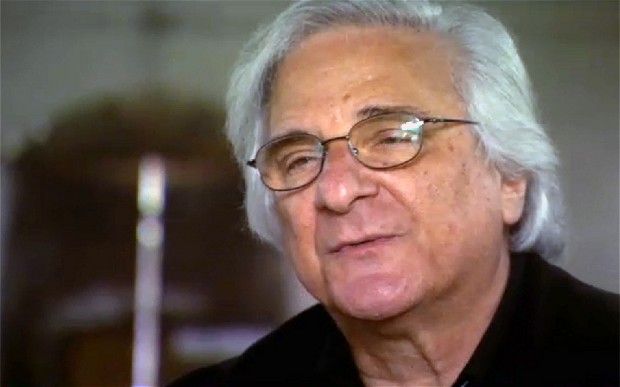 January 27, 2014
January 27, 2014
REMEMBERING THE HOLOCAUST: ‘DEFIANT REQUIEM,’ BBC FOUR REVIEW
By BENJI WILSON
American conductor Murry Sidlin remembers the story of Rafael Schächter who set up secret musical meetings in Terezin concentration camp during the Second World War.
It’s amazing that Hollywood hasn’t visited the subject matter of Remembering the Holocaust: Defiant Requiem (BBC Four). All the ingredients for Oscar consideration were there – a hero, in Rafael Schächter, a Czech conductor who, when he was sent to the Second World War concentration camp Terezin near Prague in 1941, set about holding secret musical gatherings to lift minds and souls; enemies, in the form of the Nazis, who happily sat there and watched as Schächter formed a choir of 150 of his fellow Jewish prisoners to perform Verdi’s Requiem – they were destined for death, so the Germans let them play music; and astonishing bravery from the Jewish prisoners who, as they were ordered to build their own crematorium, also constructed makeshift theatres, a hidden synagogue and this choir. Plus, the Requiem provided a belting score, and its libretto, a Latin text of wrathful vengeance and fiery judgment, couldn’t have been more brutally apposite.
It was the very best of mankind set alongside the very worst. With all that to work with, Defiant Requiem simply needed to tell the story and stand well back, and it did so superbly, in a humbling and dignified narrative. It was intercut with elegant charcoal animation and contemporary sketches of conditions in the camp, neatly stressing the point of the power of art in the face of total deprivation.
Each time a choir member was murdered by the SS, the film told us, a new singer would replace them. The final performance took place in front of the camp’s Nazi brass, visiting high-ranking SS officers from Berlin, and gullible Red Cross inspectors brought in to verify that the prisoners were being well treated. In the face of all that, it is hard to imagine the cross-currents of emotion that must have been in that room as Schächter’s choir reached ‘Libera Me Domine.’
But Defiant Requiem attempted to recreate that atmosphere – the whole film was structured around a new performance of the Requiem, to be given in Terezin, conducted by the American conductor Murry Sidlin. I found Sidlin a mildly irritating presence, but his undertaking, and the music he produced, and what it represented, were completely overwhelming.

